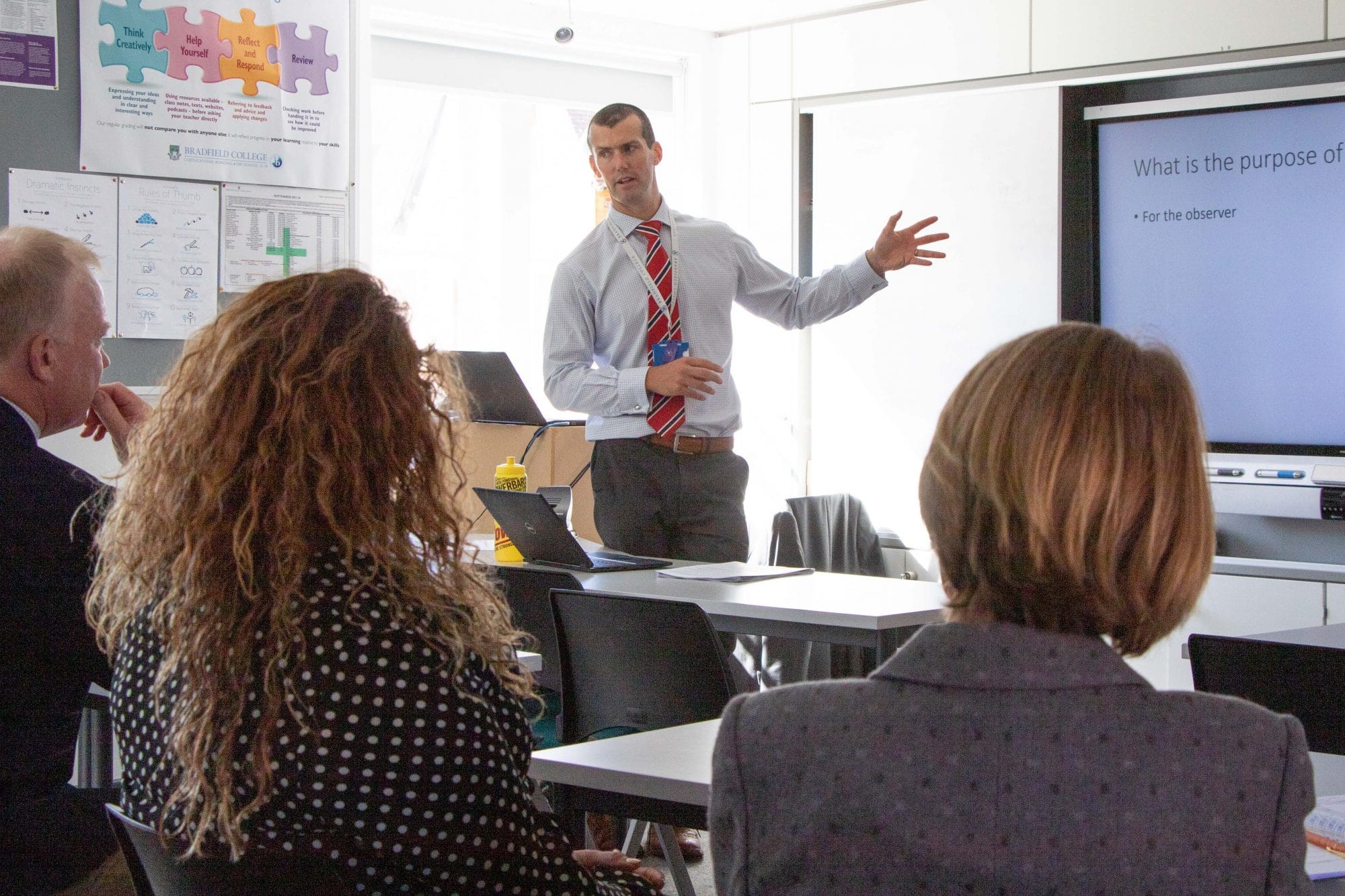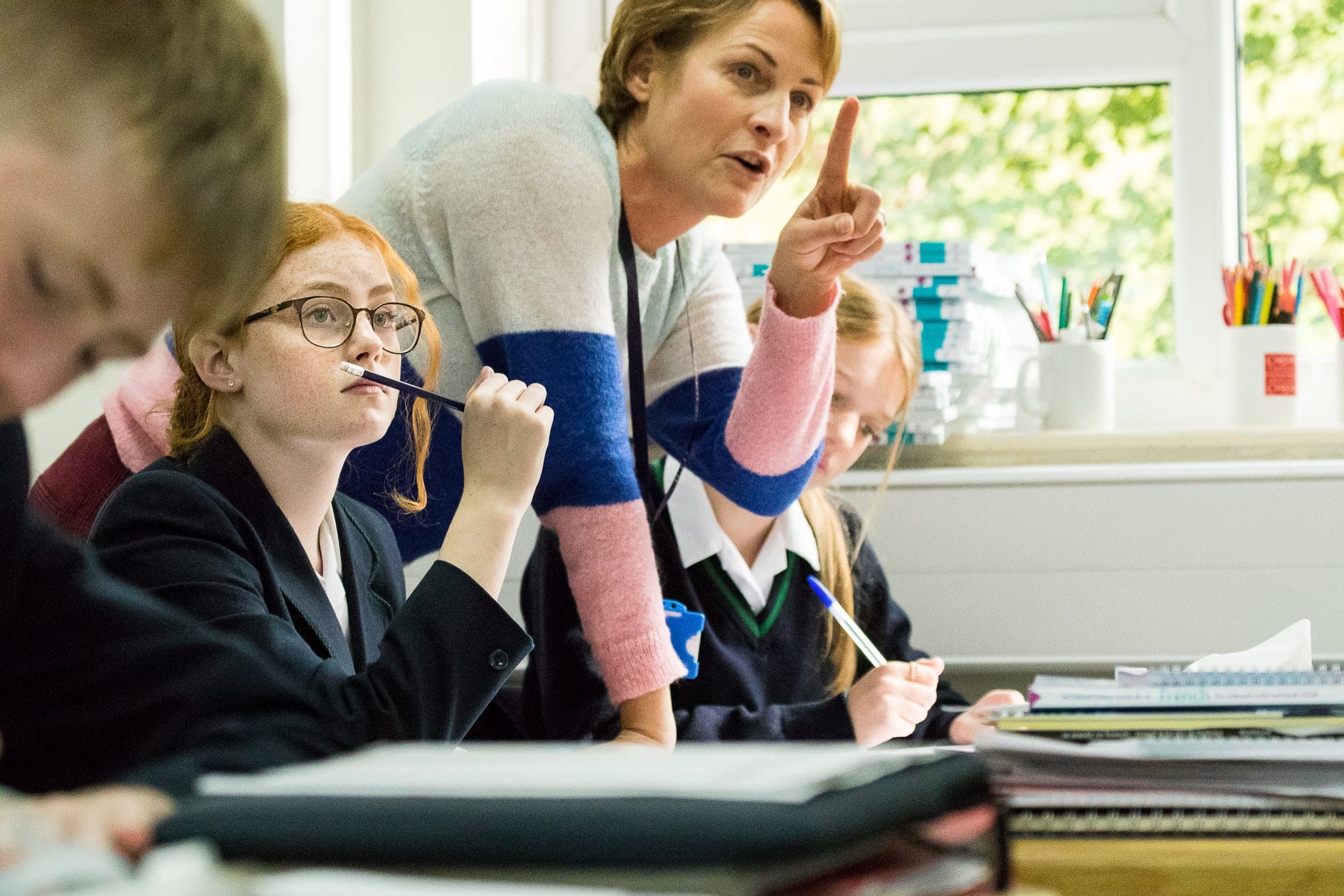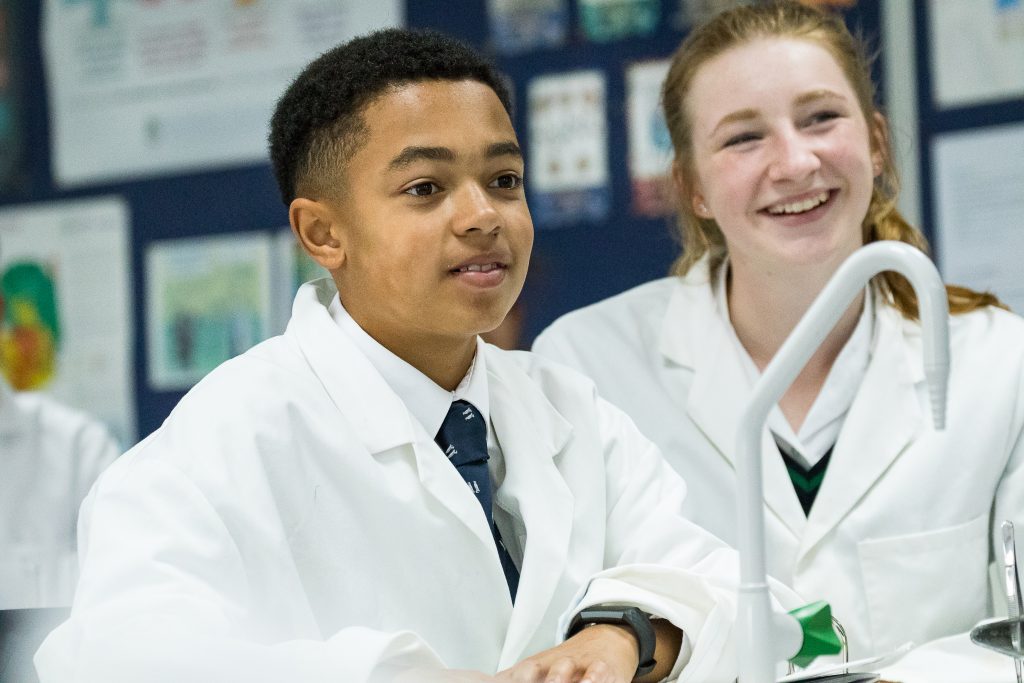
In his keynote speech given at the SSAT Conference, Dylan Wiliam, Emeritus Professor of Educational Assessment at the UCL Institute of Education said, ‘If we create a culture where every teacher believes they need to improve, not because they are not good enough, but because they can be even better, there is no limit to what we can achieve’.
This quote strongly aligns with what we are trying to embed at Bradfield in terms of supporting colleagues’ Continuing Professional Development (CPD). By fostering a culture of continuous improvement, where all teachers are challenged and inspired to become better teachers, there is no limit to what we, and more importantly our pupils, can achieve.
At Bradfield, it is not only the pupils who are learners, but also the teachers.
Teaching is an inherently personal and individual pursuit. For 40 minutes we have the privilege of our pupils’ company, engaging them with a subject which we as teachers are hugely passionate and knowledgeable about, in a manner of our choosing. Whilst there are of course principles that underpin the delivery of consistently excellent lessons, there is no single best way to teach.
If there were, our pupils’ learning experience would be incredibly tedious as they moved around the school from similar lesson to similar lesson. Instead, Bradfieldians are afforded a rich diversity of lesson presentation, inspiring their curiosity and motivating them to maximise their academic potential. It is a truly exciting place to learn.
The importance of CPD
In John Hattie’s synthesis of over 800 meta-analyses examining what affects pupil achievement, CPD is placed in the top 20 of all practices analysed. The importance of a highly effective CPD programme cannot be understated, and in order to foster a culture of continuous improvement amongst our teachers, we have worked hard to develop a sector-leading CPD programme which both enthuses and motivates colleagues.
Like all boarding schools, Bradfield is a very busy place and teachers’ time is precious. The role of a classroom teacher is multifaceted, with colleagues making significant contributions across the three pillars of school life; academic, pastoral and co-curricular.
As such, the CPD programme must reflect this, affording colleagues the opportunity to enhance their professional practice across these three spheres. However, in order for CPD to be seen as a priority and a significant part of the school learning culture, it has been given the time and resources required to achieve ‘buy-in’ and, ultimately, improvement.
To achieve this, there is strong alignment and synergy between the school’s overarching academic vision, departments’ strategic plans and at the very core of it all, the individual teacher’s needs. These needs are identified through effective collaboration and open discussion during both Teacher Review and appraisal processes, both of which have been overhauled and enhanced in recent years to give teachers greater ownership of the process, the targets set moving forward and the on-going evaluation against these.
Meeting the needs of our teachers
The diverse needs and interests of teachers require a more tailored and more personalised programme than the generic, one-size-fits-all offering found in many schools. To support the needs of the individual whilst also achieving the school’s academic aims, a narrow focus of evidence-informed ‘core’ routes are clearly defined for all members of the SCR, with optional sessions for staff to personalise their own learning.
There is no single best way to deliver lessons.
The start of each term begins with a series of INSET days, where all teachers engage with compulsory statutory training along with an exciting carousel of classroom-focused activities designed to upskill and inspire colleagues. In line with the school’s digital strategy, this term’s carousel focused on a range of IT skills, including training on making effective use of Smartboards, Prezi, Firefly and OneNote amongst others.
The programme of CPD Workshops is both rich and broad, encompassing a wide-range of different areas of pedagogy. These optional half hour lunchtime sessions are led by CPD leaders who have a specialism and interest in a pedagogical area that links to the ‘big picture’ of the school’s academic vision. Last year, the focus was on how we differentiate learning in the classroom, challenging the most able whilst making the content more accessible to learners who need more support.

To foster a culture of openness and the sharing of best teaching practice, we have re-established Mutual Observation Groups or MOGs; cross-curricular ‘triads’ of teachers who observe and meet with each other informally once a term. Colleagues will choose their own triads at the start of term, selecting fellow teachers with whom they will work closely to share best practice and support each other’s professional development. This engaging programme received positive feedback when shared at the Leadership for Professional Learning Symposium at the University of Cambridge.
Dylan Wiliam’s quotation at the onset of this article has real relevance for the College. At Bradfield, it is not only the pupils who are learners, but also the teachers. Through colleagues’ engagement with an exciting and engaging CPD programme, fostering a culture of continual improvement, their individual classroom practice will continue to develop and evolve, strengthening the overall quality of the learning and teaching environment.



